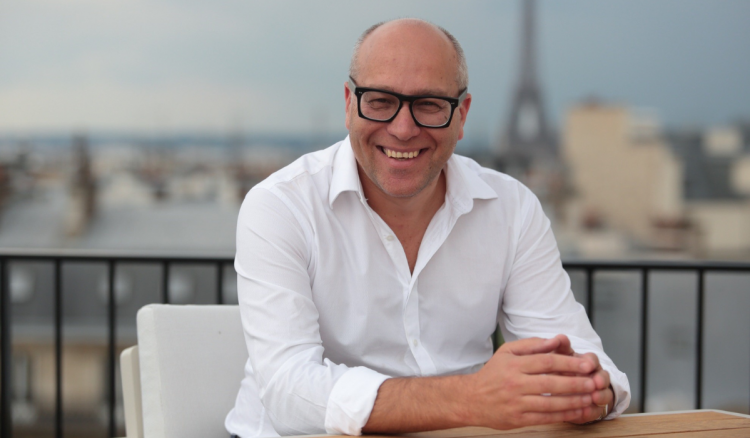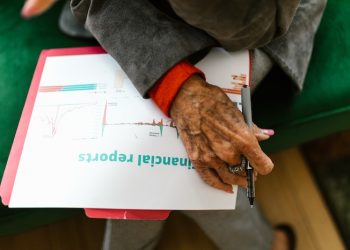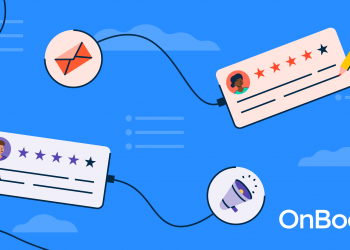Foundr Magazine publishes in-depth interviews with the world’s greatest entrepreneurs. Our articles highlight key takeaways from each month’s cover feature. We talked with Gabby Leibovich, an Australian tech legend with a portfolio of businesses valued at $1 billion. Read excerpts from that in-depth conversation below. To read more, subscribe to the magazine.
—————
Gabby Leibovich doesn’t have a resume and has never interviewed for a job.
“It’s probably something that I’ve never shared before with anyone.”
The co-founder of Australia’s No. 1 ecommerce group, The Catchgroup, is 51 years old and doesn’t plan on having a traditional job anytime soon.
Leibovich worked at his family business selling electronics and home goods until he was 32. It was there that his foundational business skills developed.
“At the age of 18, I was already selling at Melbourne markets on Sunday, and I probably earned more in five hours than most people make in a whole week. I was very entrepreneurial.”
Below you’ll learn how this mom-and-pop retailer transformed into one of Australia’s most successful tech entrepreneurs with exits worth more than $1 billion.
Imitation Game
In 2002, browsing the internet for a job wasn’t the norm. While searching for his next step, Leibovich stumbled on eBay and started selling products from his garage.
“Most customers said, ‘Is it safe to put your credit card online?’” Leibovich says. “We all smile when we talk about that, but it wasn’t that long ago.”
After two years of buying and selling products on eBay, Leibovich spotted an American website called woot.com (eventually bought by Amazon) that offered daily product deals for 24 hours or until stock ran out. He decided to work with his brother to bring the concept to Australia, and Catch of the Day was born.
“One of us told the other one, ‘Are you crazy? Are we selling fish? This will never work,’” Leibovich says.
“Sometimes in life and in business, it’s better to imitate a successful concept than be original and be very mediocre.”
Leibovich started driving a van around the streets of Melbourne, knocking on suppliers’ doors, looking to purchase excess goods from them.
“I’m almost certain that as soon as we left the room, they must have looked at each other and said, ‘This guy’s crazy.’”
The Irresistible Deal
Leibovich says the early success of Catch of the Day came down to their ability to be savvy buyers. The team bought products at a discount and sold them on the website below market price. Customers began tracking the site like obsessive fans with anticipation of Catch of the Day’s roulette of offers each day.
In 2006, Catch of the Day became Australia’s most viewed website, and they didn’t need to spend a single dime on marketing. What Leibovich calls the “FOMO effect” meant that customers never knew what product deal was available or how long the stock would last. Leibovich remembers when they sold 4,000 laptops in one day and a million dollars’ worth of televisions in an hour.
“That created a lot of buzz and street talk within the consumers but also within the supply industry,” Leibovich says. “This was perfect for our suppliers because we looked at ourselves as solution providers to those suppliers.”
He misses those early days of excitement—especially the rush of finding unique products and seeing the overwhelming reactions from customers.
“The strength of the deal created that amazing need to come and check us every day at midday, and every day, the audience kept growing from thousands to tens of thousands to hundreds of thousands of people,” Leibovich says.
As the ecommerce industry became more widespread, so did the competition. As a result, Catch of the Day rebranded to Catch, focusing on a marketplace model instead of a flash deal site.
Over the past decade, Leibovich has invested in 20 tech businesses and startups, including Luxury Escapes, Catapult, Zip, Tribe, hipages, Fiverr, RateMyAgent, Vervoe, and Flippa.
“The reason we succeeded is in the execution,” Leibovich says. “It’s not the idea.”
200 Lessons and Counting
Leibovich isn’t retiring. During the pandemic, he wrote a book called Catch of the Decade that’s filled with lessons from his entrepreneurial journey. He wrote the book to organize the frameworks that made him successful and inspire the next generation of entrepreneurs.
“There are 200 small lessons, and there are about 25 larger lessons, and one of the larger lessons actually is about ideas,” Leibovich says. “I promise you that any idea that you can come up with, someone else is working on it right now around the world. What makes the difference between an idea is reaching success or not.”
In the book, Leibovich leans into the retail DNA that formed him as a teen and spread across his businesses. For example, his cousin Cameron started working for Leibovich in 2008, sweeping warehouse floors. He became one of Catch’s most successful buyers and eventually pitched the business concept to sell grocery items.
“He had what we like to call the ‘Catch DNA,’” Leibovich says. “He understood the formula, the mentality.” Leibovich says instead of headhunting for talent, he identifies ‘intreprenuers’ within the team.
“We give them the autonomy and the freedom to be able to execute,” Leibovich says. “We like to make decisions as a group rather than as a founding team filtering down the decision.”
But the book and Leibovich’s career aren’t all about the wins.
“We failed many times, but we don’t cry about spilled milk,” Leibovich says.
“You just keep on moving, and that failure can cost millions of dollars…sometimes.”
When Leibovich launched EatNow, they were stacked against Menulog, the largest food delivery service in the country at the time.
“After two years of running it, the business was losing something like $300,000 a month in running costs, but we still believed in it,” Leibovich says. “We still backed it.”
The backing paid off. In 2015, the two businesses merged right before Uber Eats and Deliveroo entered Australia. In an exit to remember, a British company bought the merger for $855 million. In 2019, Catch was sold to Wesfarmers for $230 million, resulting in total exits of more than $1 billion.
In his book, Leibovich explains the failure-turned-success of EatNow as the 1 + 1 = 3 model.
“We are true believers that you can achieve more by teaming up with your direct competitor or competition,” Leibovich says.
Leibovich also believes entrepreneurs need luck. According to Leibovich, “luck” happens when you make yourself aware of your surroundings, know an industry, and spot opportunities.
Essentially, you make your own luck.
“The gut feeling and the luck are all mixed up, but at the same time, entrepreneurs need to back themselves, and entrepreneurs need to have a high tolerance for risk,” Leibovich says.
“We’re not afraid to take risks.”
Leibovich says the risks become easier with repetition, and this mindset naturally leads to new projects. His next business, Little Birdie, is a coupon discovery website launched in 2022.
“What makes the difference between an idea reaching success or not? It’s those 1,000 small decisions that need to be done in the office every single day by yourself and by your team that will differentiate you from the winner to the nonwinner.”
Two hundred lessons later, Leibovich is still looking for more ideas. With his toolbox ready, there’s no telling what next business idea will catch his fancy.
Source by foundr.com











